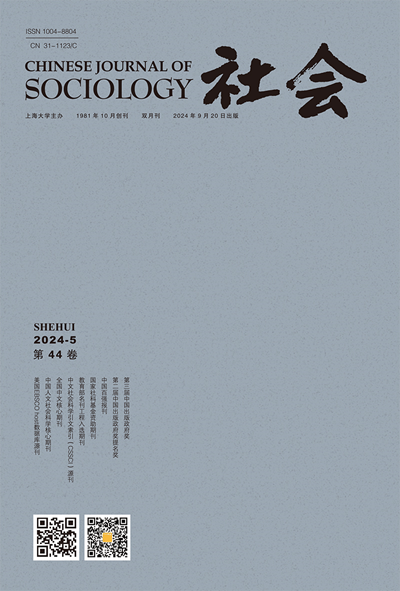Lost trust and dissolved guanxi circles: A case study of a collective resignation event at Tianyuan Tea Company
IF 1.8
4区 社会学
Q2 SOCIOLOGY
引用次数: 1
Abstract
The mainstream explanation for employee turnover is either cause–effect factor analysis or interaction analysis. The former is effective in identifying causal relations between factors and the latter in revealing the dynamics of interpersonal relationships. Combining the benefits of both methods, this study applies guanxi circle theory to studying employee turnover. It places various turnover factors under the framework of interpersonal interactions and uses the social network structure as an analytic point from which to examine the dynamic evolution of trust within the organization. The study finds that in the case of the Tianyuan Tea Company, the collective resignation was largely caused by the collapse of trust within the guanxi circles that informally operated within the company social network centered on the management authority who had the power of hiring, firing, and promotion. Five conclusions are proposed: (a) the formal hierarchical structure of power can either coincide with or be separate from the informal guanxi circles – when the two are in accordance, resignations rarely happen, while discordance between the two is often an indicator of potential resignations; (b) organizational changes are most likely to cause guanxi circles outsiders to resign; (c) members of the inner guanxi circle in the organization do not resign because of discordant relationships with lower level managers, but rather, they get relocated with promotion; (d) the collapse of ‘bridges’ between guanxi circles can cause collective resignations; (e) those who survive organizational shakeups are members of the inner guanxi circle in the organization and the ‘bridges’ of guanxi circles. This study contributes to the research on employee turnover by introducing a new perspective of guanxi circle theory as well as drawing attention to the important function of the ‘bridge’ in coordinating between circles, and by offering theoretical understanding and practical guidance for social governance.失去信任与关系圈瓦解——以天元茶业公司集体辞职事件为例
对员工流动的主流解释要么是因果因素分析,要么是互动分析。前者在识别因素之间的因果关系方面有效,后者在揭示人际关系的动态方面有效。结合这两种方法的优点,本研究将关系圈理论应用于员工流动研究。它将各种离职因素置于人际互动的框架下,并以社会网络结构为分析点,考察组织内部信任的动态演变。研究发现,在天元茶业公司的案例中,集体辞职在很大程度上是由关系圈内部的信任崩溃引起的,这些关系圈在以拥有雇佣、解雇和晋升权力的管理当局为中心的公司社交网络中非正式运作。提出了五个结论:(a)正式的权力等级结构可以与非正式的关系圈子重合,也可以与之分离——当两者一致时,辞职很少发生,而两者之间的不和谐往往是潜在辞职的指标;(b) 组织结构的变化最有可能导致关系圈外部人士辞职;(c) 组织内部关系圈子的成员并不是因为与下级管理者的关系不和谐而辞职,而是随着晋升而被调动;(d) 关系圈子之间“桥梁”的坍塌可能导致集体辞职;(e) 那些在组织变革中幸存下来的人是组织内部关系圈子的成员,也是关系圈子的“桥梁”。本研究通过引入关系圈理论的新视角,关注“桥梁”在圈与圈之间协调中的重要作用,为社会治理提供理论理解和实践指导,为员工流动研究做出了贡献。
本文章由计算机程序翻译,如有差异,请以英文原文为准。
求助全文
约1分钟内获得全文
求助全文
来源期刊

社会
Social Sciences-Social Sciences (all)
CiteScore
1.70
自引率
0.00%
发文量
6799
期刊介绍:
The Chinese Journal of Sociology is a peer reviewed, international journal with the following standards: 1. The purpose of the Journal is to publish (in the English language) articles, reviews and scholarly comment which have been judged worthy of publication by appropriate specialists and accepted by the University on studies relating to sociology. 2. The Journal will be international in the sense that it will seek, wherever possible, to publish material from authors with an international reputation and articles that are of interest to an international audience. 3. In pursuit of the above the journal shall: (i) draw on and include high quality work from the international community . The Journal shall include work representing the major areas of interest in sociology. (ii) avoid bias in favour of the interests of particular schools or directions of research or particular political or narrow disciplinary objectives to the exclusion of others; (iii) ensure that articles are written in a terminology and style which makes them intelligible, not merely within the context of a particular discipline or abstract mode, but across the domain of relevant disciplines.
 求助内容:
求助内容: 应助结果提醒方式:
应助结果提醒方式:


